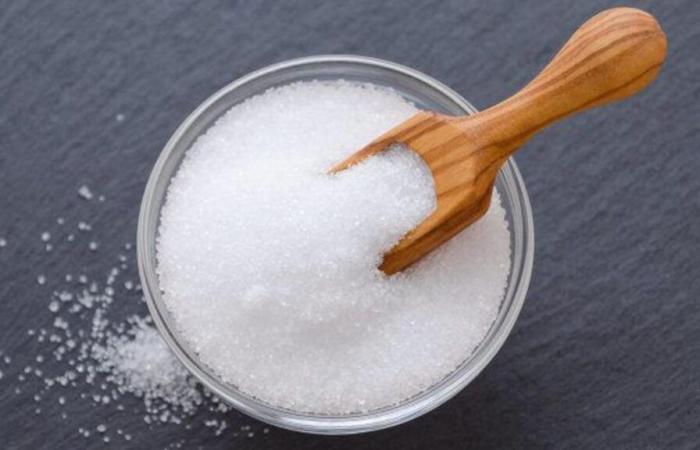
Getty Images/iStockphoto
According to this diabetologist, there is no benefit for a healthy person in measuring their blood sugar level.
HEALTH – Should you monitor your blood sugar peaks if you are not diabetic? This is what some influencers on social networks recommend, who sometimes even encourage the use of glucose sensors. Their idol? Jessie Inchauspé, aka @glucosegoddess (the “glucose goddess”) whose best-selling book Make your glucose revolution, released in France in 2022, advocates controlling the effects of sugar to suffer them less… and to lose weight.
So, should we ban all types of sugar from our diet or try to avoid these famous blood sugar peaks at all costs? We take stock with Professor Jean-Pierre Riveline, diabetologist at the Lariboisière Hospital in Paris and head of the University Center for Diabetology and its Complications (CUDC).
HuffPost. Should you be obsessed with your sugar levels and avoid blood sugar spikes at all costs?
Professor Jean-Pierre Riveline. In diabetic people, it has been proven that significant glycemic variability is not harmless for health. In these cases, any therapeutic approach that improves this variability, which can involve hygiene and diet rules, such as diet, or through treatment with medications or insulin, is good for the patient.
On the other hand, in people who are healthy, we do not have proof that glycemic variability has consequences on health, although it is not excluded. We must be wary of the financial interest behind advice or practices that are not always scientifically proven.
We do not have data from rational studies that support this hypothesis about blood sugar spikes in healthy people. And this can create a certain anxiety, a certain fear in the population. Is it justified? I’m not sure.
Do we know what a spike in blood sugar causes in the body?
In patients with medical conditions, acute spikes in blood sugar have been shown to create a chemical phenomenon in the body called “oxidative stress.” It’s like lighting a match in a cell. This “oxidative stress” is not trivial, and it is probably one of the factors which contribute to the appearance of complications of diabetes, particularly cardiovascular ones.
In healthy people, there is no demonstration that a spike in blood sugar leads to such a phenomenon. On the other hand, I am convinced that limiting the consumption of rapidly absorbed sugars, often associated with peaks of hyperglycemia, can be commendable in the long term – but we do not need glucose sensors for that. It is a good way to prevent the occurrence of later overweight, obesity or type 2 diabetes. This doesn’t stop you from partying from time to time, but the idea is not to do it every day.
Is sugar necessary for the body?
Sugar is essential to the body, it is an essential element for survival. To be healthy, we know how to distribute calories between carbohydrates, fats and proteins. What is recommended is that more than half of the calorie distribution be taken up by carbohydrates. Sugar is one of the body’s main sources of energy.
Afterwards, there are different types of sugars: quick or simple absorption sugars, that’s all you see in a pastry for example. And slower-absorbing, more complex sugars found in pasta or potatoes. It is better to favor sugars that are absorbed slowly and in reasonable quantities. Fruits are commendable, they are fibers which have positive effects on weight, diabetes and on the prevention of cancers, especially when taken in the middle of meals.
We often hear that “sugar is poison”what do you think?
Dire « sugar is poison “, this is true if it only consists of Coca-Cola for adolescents, for example. Because they are only rapidly absorbed sugars. There are also recommendations on the distribution of calories throughout the day: if you eat fast sugars all day long outside of meals, it is true that sugar can be poison.
But be careful, these speeches can be oversimplified. It depends on what sugar and how. And above all, it is a counterproductive speech which can lead to eating disorders: telling someone “ You will never eat birthday cake ”, that’s no…
Also see on HuffPost :
Reading this content may result in cookies being placed by the third party operator who hosts it. Taking into account the choices you have expressed regarding the deposit of cookies, we have blocked the display of this content. If you wish to access it, you must accept the “Third Party Content” category of cookies by clicking on the button below.
Play Video





